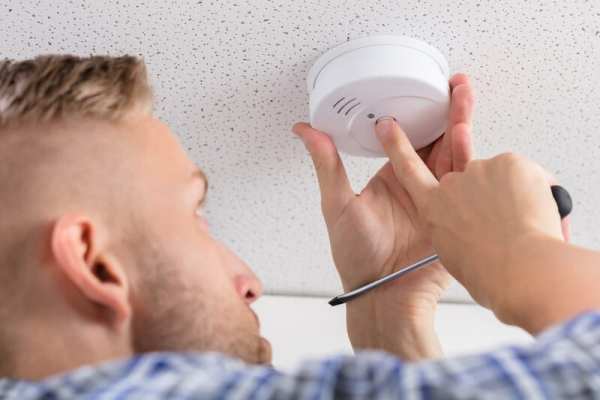Across much of Europe, smoke detectors are a legal requirement. In Switzerland, they are not. The recent death of two people in a fire in Pfaffnau in the canton of Luzern has prompted calls to change the rules, reported SRF. © Andrey Popov | Dreamstime.comOn 19 March 2024, shortly after midnight, rescue workers were called to a burning apartment in Pfaffnau. Seven people were evacuated, three of whom were sent to hospital because of likely smoke inhalation. Two missing people were eventually located dead in the aftermath of the blaze. The vast majority of fire deaths are caused by smoke inhalation. A few breaths of dense smoke can sometimes be fatal. Sometimes this can occur while people are sleeping. Fires rapidly consume oxygen while producing large amounts of carbon monoxide.
Topics:
Investec considers the following as important: Editor's Choice, health, Property
This could be interesting, too:
Investec writes The global brands artificially inflating their prices on Swiss versions of their websites
Investec writes Swiss car insurance premiums going up in 2025
Investec writes The Swiss houses that must be demolished
Investec writes Swiss rent cuts possible following fall in reference rate
Across much of Europe, smoke detectors are a legal requirement. In Switzerland, they are not. The recent death of two people in a fire in Pfaffnau in the canton of Luzern has prompted calls to change the rules, reported SRF.

On 19 March 2024, shortly after midnight, rescue workers were called to a burning apartment in Pfaffnau. Seven people were evacuated, three of whom were sent to hospital because of likely smoke inhalation. Two missing people were eventually located dead in the aftermath of the blaze.
The vast majority of fire deaths are caused by smoke inhalation. A few breaths of dense smoke can sometimes be fatal. Sometimes this can occur while people are sleeping. Fires rapidly consume oxygen while producing large amounts of carbon monoxide. Carbon monoxide doesn’t produce the feeling of suffocation and as it builds up it displaces oxygen in the bloodstream. This can lead to a loss of consciousness while sleeping.
Smoke detectors do not sleep or succumb to carbon monoxide poisoning. Fitting one could save your life. For this reason, various authorities in Switzerland recommend fitting the devices in your home. They are inexpensive and easy to fit. They are easily mounted to the ceiling or high on walls. They then need to be checked occasionally to ensure the batteries that power them have sufficient charge.
Why are smoke detectors not compulsory in Switzerland?
In Germany, Austria. Ireland and UK, homes must have smoke detectors throughout them. In France, Belgium, Czech Republic and all Scandinavian nations homes must have at least one detector. In Switzerland, Italy, Spain, Portugal and all of Eastern Europe there are no requirements.
The argument against compulsory detectors in Switzerland seems to be centred on their small potential impact. A fire protection expert told SRF that there are relatively few fatal fires in Switzerland, which already has high fire protection standards. So any measures to further reduce deaths would likely have little impact. This means the cost of installing them and ensuring compliance would cost a lot but deliver little. At the same time he recommends fitting smoke detectors. Buy quality detectors tested according to the relevant standard (EN 14604), he said. The devices also need to be placed correctly. Ensure they are fitted in central locations and in bedrooms.
More on this:
SRF article (in German)
For more stories like this on Switzerland follow us on Facebook and Twitter.
